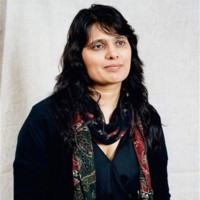
Throughout my childhood, my mother and father financially supported family members back in Pakistan.
There wasn’t even time to apply wedding henna. It was a case of, “Quick, quick, before the silly foreigner changes her mind.”
I feel sorry for her [Ali’s mother]. I know how great the pressure was to fall in line with what the family wanted. From the outset my father didn’t want to go ahead with the marriage, but my mother said, “We must do it. If we don’t go ahead there will be shame on the family.”
I find it remarkable that what happened to me 25 years ago is still happening to girls today. I say to her [Ali’s daughter], “You go out there and choose who you want to love, be he white, Chinese, whatever.” All I ask is that she’s happy.
Narrative provided by Karma Nirvana and featured in The Telegraph in an article ‘Forced marriage: the survivors' tales’ by Sally Howard. Photo by Kate Peters.









